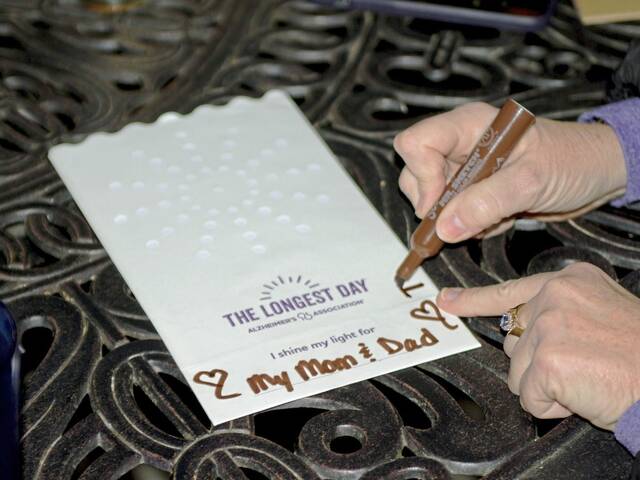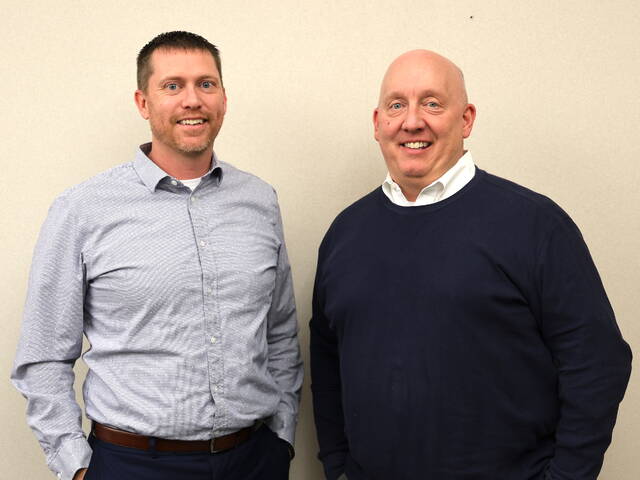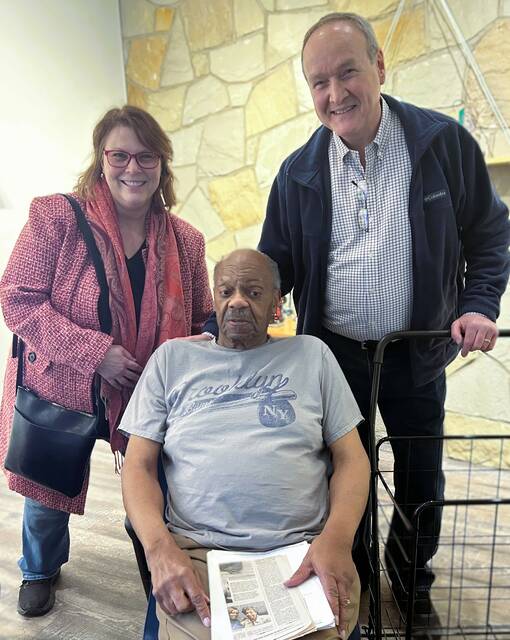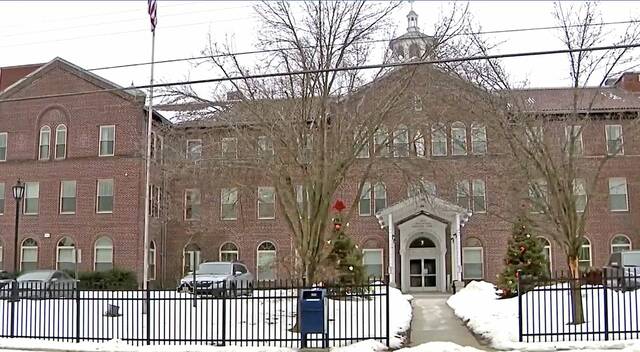An estimated 6.5 million Americans ages 65 and older are living with Alzheimer’s disease.
“It’s awful. And in the next 25 years, that number will double,” Bethel Park resident Dayna Brown said. “So if you don’t know someone or haven’t personally experienced the effects of Alzheimer’s or another form of dementia, you absolutely will in the upcoming years.”
She has been volunteering for and raising money on behalf of the Alzheimer’s Association Greater Pennsylvania Chapter since 2018, the year after her mother, Geraldine Suvak, died of the progressive memory-loss disease. Her father, Bill Suvak, suffered from vascular dementia and passed away in September.
“The holidays can be extremely difficult, especially if you have experienced a major loss, such as what I have experienced. And I’m just so thankful for this,” Brown said during an event she organized for Dec. 21.
The Winter Solstice Luminary Lighting, held at the Trolley Stop Inn in Bethel Park, provided an opportunity for her and others to remember loved ones lost to forms of dementia. Guests were given white bags on which to write the names of people being honored, and small light-emitting diodes provided illumination.
“Tonight, we are reminded that on the darkest day of the year — the shortest day of the year, the day with the least amount of light — that we can outshine whatever type of despair, or in this case, Alzheimer’s,” Brown said.
The event’s timing also represented the halfway point to the Longest Day fundraiser for the Alzheimer’s Association, held each June 21.
For her part, Brown has bicycled to Ohiopyle and back on the past five Summer Solstices, bringing in nearly $10,000 toward research and resources. She is aiming to match the cumulative total for her 2023 campaign.
Joining the Dec. 21 gathering was Nathaniel Sofranko of Mt. Pleasant, development manager, for the Greater Pennsylvania Chapter.
“By your support of Dayna and what Dayna does for us,” he told those in attendance, “we are able to deliver on our mission and try to reach our vision of a world without Alzheimer’s and all other dementia.”
Although there is no cure for Alzheimer’s, the U.S. Food and Drug Administration in 2021 approved the sale of aducanumab, a medication that reduces the buildup of plaque in the brain, under the brand name Aduhelm.
“Right now, there are clinical trial results for another drug called lecanemab that show significant positive results in reducing the cognitive decline of somebody living with early onset Alzheimer’s or mild cognitive impairment,” Sofranko said. “We’re hoping by Jan. 6, the FDA approves this drug, as well, so that these are available to those who can benefit from it.
“These are our initial stepping stones for much more to come.”
Headquartered in Chicago, the Alzheimer’s Association was founded in 1980 by a group of family caregivers. In addition to supporting research, the organization promotes risk reduction and early detection while offering a wide variety of educational programs and other resources.
For more information, visit www.alz.org/pa and alz.org/thelongestday.















